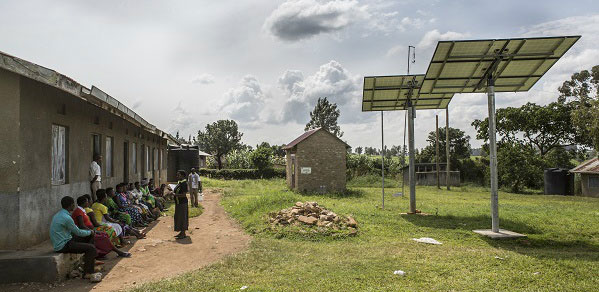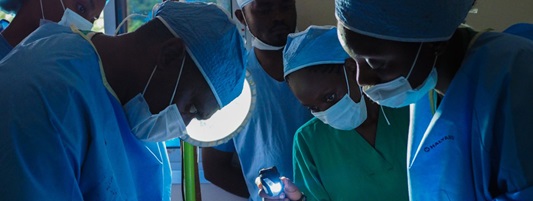Around a billion people today rely on health facilities without electricity supply. While most large hospitals may have round-the-clock access to power, electrification rates drop significantly for rural clinics. In the absence of reliable power, many of the basic life-saving interventions cannot be undertaken safely or at all.
A recent study analysing more than 121,000 health facilities, in 46 low and middle-income countries, found that almost 60% of them lacked access to reliable electricity. Even facilities with electricity access can often suffer from an unreliable supply – negatively impacting the ability of medical professionals in rural communities to deliver modern health services.

Renewable energy is at the forefront of solving this issue. Off-grid (stand-alone and mini-grid) renewable energy solutions represent a cost-effective, rapidly deployable and reliable option to electrify healthcare centres, transforming lives whilst bolstering global efforts to achieve Sustainable Development Goal 3 – good health and wellbeing.
To support this, IRENA organised the international conference on Renewable Energy Solutions for Healthcare Facilities in November 2018. The event bridged the fields of access to electricity and healthcare, bringing together policy-makers, practitioners, financial institutions, development partners, and NGOs, to explore the potential for off-grid renewables to significantly improve energy access for rural healthcare facilities and co-develop meaningful pathways to address the challenges faced by the sector.
Key messages from the discussion at the event:
- Health facilities should be a high priority in electrification plans among both national governments and development partners. Off-grid renewables offer rapidly deployable, reliable, cost-effective solutions.
- Addressing the energy access need in healthcare facilities requires increased co-operation between the energy and health sectors, including ministries of energy and health. This should happen at all levels, from strategy and planning to policies, budgeting, procurement and implementation.
- Capital and recurring expenses related to electricity should be budgeted as part of healthcare facility operations from the outset. Budgeting should also reflect costs for operation and maintenance, such as battery replacement.
- Strong collaboration between private, public and non-governmental institutions has proven a key success factor for healthcare electrification in certain African and South-Asian countries. Such partnerships should be encouraged.
- There is a need for innovation in delivery and financing models. Dedicated support and financing schemes, and energy service agreements can help accelerate electrification of rural health centres.
- Aggregation models, with proximal health facilities grouped together on a shared energy service contract, could bring down costs and facilitate maintenance.
- Innovation has to be encouraged and promoted across the value chain, including in the design of robust, low maintenance, efficient, user-friendly medical devices suited for use in remote off-grid areas.
- Energy-efficient medical devices, combined with off-grid renewable energy and telecommunications, can expand the services offered by primary health centres in under-served communities. This also reduces the need for patients to travel to larger, more distant facilities.
- A local ecosystem must be created to ensure the long-term sustainability of renewable energy systems. This includes training staff and maintenance technicians in rural areas.
- Electrifying rural health centres strengthens staff recruitment and retention, further improving the reliability and continuity of rural medical services.
These outcomes are summarised in IRENA’s healthcare conference flyer:

Off-Grid Renewables Supply Life-Saving Power to Rural Health Centres
Access to electricity is crucial to provide effective healthcare. Yet an estimated one billion people rely on health facilities without electricity. IRENA’s healthcare conference flyer summarizes the outcomes of the international conference on Renewable Energy Solutions for Healthcare Facilities in detail, recognising the need for action.
